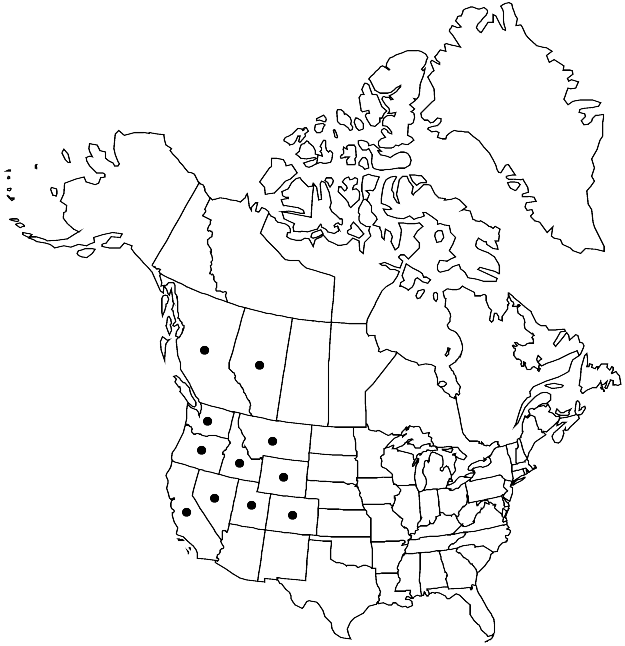Difference between revisions of "Homalothecium nevadense"
Bot. Gaz. 13: 202. 1888.
FNA>Volume Importer |
imported>Volume Importer |
||
| (5 intermediate revisions by 2 users not shown) | |||
| Line 11: | Line 11: | ||
|label=Endemic | |label=Endemic | ||
}} | }} | ||
| − | |basionyms={{Treatment/ID/ | + | |basionyms={{Treatment/ID/Basionym |
|name=Hypnum nevadense | |name=Hypnum nevadense | ||
|authority=Lesquereux | |authority=Lesquereux | ||
| + | |rank=species | ||
| + | |publication_title=Mem. Calif. Acad. Sci. | ||
| + | |publication_place=1: 33. 1868 | ||
}} | }} | ||
|synonyms= | |synonyms= | ||
| Line 38: | Line 41: | ||
-->{{#Taxon: | -->{{#Taxon: | ||
name=Homalothecium nevadense | name=Homalothecium nevadense | ||
| − | |||
|authority=(Lesquereux) Renauld & Cardot | |authority=(Lesquereux) Renauld & Cardot | ||
|rank=species | |rank=species | ||
| Line 52: | Line 54: | ||
|publication year=1888 | |publication year=1888 | ||
|special status=Endemic | |special status=Endemic | ||
| − | |source xml=https:// | + | |source xml=https://bitbucket.org/aafc-mbb/fna-data-curation/src/2e0870ddd59836b60bcf96646a41e87ea5a5943a/coarse_grained_fna_xml/V28/V28_692.xml |
|genus=Homalothecium | |genus=Homalothecium | ||
|species=Homalothecium nevadense | |species=Homalothecium nevadense | ||
Latest revision as of 21:37, 5 November 2020
Plants medium-sized, in dense tufts, light green when young, golden or brownish yellow with age. Stems to 10 cm, densely regularly pinnate, branches 5–7 mm, curved to almost circinate. Stem leaves erect-appressed, triangular-lanceolate, (1–)1.3–2(–2.5) × (0.2–)0.5–0.7(–0.8) mm; base short-rounded, narrowly decurrent; margins plane or often recurved at places, serrulate or subentire; apex acuminate or gradually tapered; costa to 70–95% leaf length, terminal spine present; alar cells ovate, 6–7 µm wide, walls thick, region of 5–10 × 6–10 cells, moderately distinctly delimited, opaque to moderately translucent; laminal cells linear-flexuose, 30–85 × 5–6 µm; basal cells irregularly long-ovate, region in 1–3 rows, indistinctly delimited from distal cells. Branch leaves appressed when dry, spreading when moist, lanceolate, 1–1.7(–2.1) × 0.2–0.4 mm; margins plane or recurved at places, serrulate or serrate proximally and in alar region, entire or minutely serrulate distally; apex narrowly acute to acuminate; costa to 75–95% leaf length, variable within one shoot, terminal spine present; alar cell shape irregular, 5–10 µm wide, walls strongly incrassate, region of 2–10 × 3–8 cells, distinctly delimited; laminal cells linear-flexuose, 25–65 × 4–6 µm; basal cells in 1 (or 2) rows; distal cells smooth. Sexual condition phyllodioicous or dioicous. Seta 0.7–1.5 cm, rough proximally, sometimes slightly so, smooth distally. Capsule erect, narrowly cylindric, straight to slightly curved, 2–2.5 mm; annulus separating by fragments; operculum long-conic to rostrate; peristome hygrocastique; exostome teeth with long transitional zone; endostome basal membrane short, segments as long as exostome teeth, very narrow, cilia absent or less than 1/4 segment length. Spores 9–16 µm.
Habitat: Calcareous rock, quartzite, granite, rotten logs, trunks, soil, forests, open areas
Elevation: low to high elevations (0-3100 m)
Distribution

Alta., B.C., Calif., Colo., Idaho, Mont., Nev., Oreg., Utah, Wash., Wyo.
Discussion
Homalothecium nevadense has stem leaf costae that are stout to the end, as does H. aeneum; the branch leaves may be straight, homomallous, or falcate-secund; and the spores are smooth.
Selected References
None.